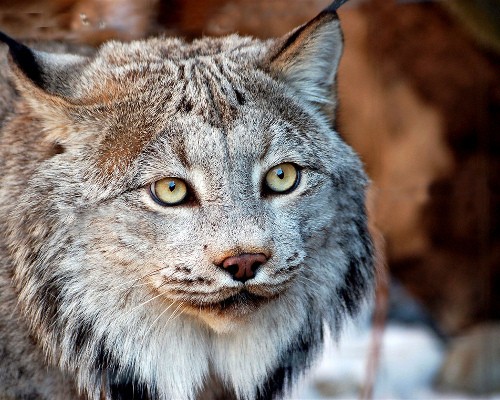
Hurricane Sandy, Ocean Grove Pier - New Jersey, October 29, 2012.
In Part 1 of my Power With Nature blog, I quoted a pro-nuclear environmental activist who dismissed my concerns about high energy use and high consumption, saying: “I don’t really see a massive change in lifestyle; if you want to go live off the grid and grow all your own food, etc. good for you, but don’t expect the vast majority of Americans to join you.” This fellow, like many other environmentalists, seemed to assume that a change in lifestyle would entail hardships that most Americans would never accept. In his case, the risks of nuclear power were less a concern than loss of his and others’ lifestyles.
Many Americans, especially those in the middle and upper classes, do seem very attached to their material comforts and, for some, a life of material excess. And most everyone is so dependent on society for the necessities of life (e.g. shelter, water, food, heat) that they can barely conceive of a different way of life. This dependence becomes very evident each time disaster strikes an area (like Hurricane Sandy) and suddenly all electricity, food, communication, clean water, and easy transportation disappears. These are frightening circumstances and especially so for people who lack financial resources, physical capabilities and strong local communities to help them survive the crisis. But, increasing disasters – whether from climate changes or financial crashes – do not seem to shake the faith of many middle class Americans in the all too fallible capitalist patriarchal social system they rely on. Instead of fearing – and modifying – their dependence, most people fail to question what they consider to be a superior way of life.

Threatened Canada Lynx. This lynx has feet like snowshoes to help it navigate the snowy climate it is adapted to. There are fewer than 1000 left in the U.S. where they live in northern latitudes and high spruce-fir forests. Warming from climate change will force lynx populations further and further north. Should warming eliminate the cold climate they need, this species could move from threatened status to endangered or extinct.
Habitat loss. The sixth extinction. Climate change. Maybe these words are too abstract and middle class America is not getting the message in a hard punch to the gut (yet). I keep asking myself: How can so many middle class Americans think they have “the good life” when that way of life is creating a mass extinction (i.e. killing much of life on earth) and is leaving their descendents with a much poorer world?
Meanwhile, this “superior” way of life is threatening every person on the planet, including the privileged middle and upper classes, with losses far greater than a loss of creature comforts like air conditioning or a wedding in the Caribbean. Habitat loss. The sixth extinction. Climate change. Maybe these words are too abstract and middle class America is not getting the message in a hard punch to the gut (yet). I keep asking myself: How can so many middle class Americans think they have “the good life” when that way of life is creating a mass extinction (i.e. killing much of life on earth) and is leaving their descendents with a much poorer world? There seems to be an ethical problem here. And it isn’t as if life in capitalist patriarchy is actually a good time. We Americans are all living with the consequences of domination and that is never much fun -as I will discuss shortly.
Sold Out?
Are middle class Americans so self-centered, ignorant or shallow that they can be bought off by material goods? I don’t think so. After all, the rich and powerful decision-makers, mostly men, are the ones in control and this society is largely a reflection of their desires and visions. The middle classes are culpable for supporting the ruling class, but most of them are just going along with the status quo. A major consciousness shift and major commitment are required to do otherwise. There are good reasons why many people don’t make that shift.

Endangered Red Wolf. Red wolves once roamed the forests here in northwest Arkansas, but now they are one of the world's most endangered members of the dog family. We think that some of the local coyotes may have a trace of red wolf blood as the species intermixed to some extent as the red wolf numbers dwindled. The red wolf once ranged through the eastern and southcentral United States, but the wolves were considered dangerous predators and populations were purposefully decimated by the early part of the 20th Century, much as has happened with the gray wolf. A captive breeding program has had some success and now over 100 red wolves roam their native habitats in eastern North Carolina.
Start with the fact that the rich and powerful control most of the institutions that shape consciousness (such as the media) and then stir in the power of the paycheck as a behavior modifier. As much as Americans want to see themselves as individualistic, our lives and thoughts are greatly shaped by our society. Thus, capitalist patriarchy creates ecological disaster and has shaped its populace to stand by and let it happen, sometimes denying reality altogether. The social influences corralling so many Americans into going along with the agenda of capitalist patriarchy go well beyond simple manipulations of our attitudes and behaviors. Even our inner selves are shaped by patriarchy and its patterns of domination. Today I want to focus on just one of the ways our psychological functioning becomes distorted: the suppression of emotion and creation of emotional distance between people and between people and nature. Without a great deal of emotional distance we could not watch bulldozers at work or tolerate the destruction of lands and the lives of people who depend on those lands for their survival. This emotional distance makes it possible to ignore the pain of others and avoid feeling the loss of nature all around us. We all need strong and sound emotional cues to make the shift in consciousness necessary for confronting and changing society.
But, wait! Patriarchy is just a human created social system. Our ancestors, the male ones I expect, started this monster that is patriarchy and it has snowballed with the growth of capitalism, but we can stop it. First step, explore how patriarchy shapes our inner selves to a) create the emotional distance that separates us from other people and nature and b) go along with the program of ecocide.
At the Core: Training Male Dominators
A society based in domination requires people who can dominate and people who will submit. In this patriarchy, men are trained as dominators through learning masculinity and women are trained for submission through learning femininity. But, everybody learns submission as children (who are constantly bossed around by adults) and also domination (as most everyone will fight back to gain some status in the pecking order). In Unmaking War, Remaking Men, Kathleen Barry explains that there is a “core masculinity” instilled in boys and men across many different cultures, classes, and races. Learning core masculinity trains boys and men to become dominators.
The social influences corralling so many Americans into going along with the agenda of capitalist patriarchy go well beyond simple manipulations of our attitudes and behaviors. Even our inner selves are shaped by patriarchy and its patterns of domination.

Endangered Mexican Wolf. Once ranging parts of Arizona, New Mexico and Texas, by the 1970s the Mexican Wolf, a subspecies of gray wolf was nearly extinct. In 1976 this wolf was listed as an endangered species. A captive breeding program was established and in 1998 11 Mexican Wolves were released in the in Apache National Forest in southeastern Arizona. Now there are about 83 Mexican Wolves living in the wild. Even with such a small population in the wild, the U.S. Fish and Wildlife Service, responsible for managing the wolves, will still issue permits to private individuals, such as ranchers, to kill wolves found preying on their livestock and limit the areas where wild wolves can roam. Green groups are suing FWS over rules like these.
This is how it works, according to Barry. Boys learn from an early age the frightening fact that their society is willing to sacrifice them in war. Training in masculinity helps boys and men handle their fears and the knowledge that their society considers them so unimportant as to be expendable in war. They learn to suppress their feelings and distance themselves from their fears. This disconnection is central to core masculinity. As expendable people, men are not supposed to protect themselves (i.e. stay away from war), but are supposed to protect women and children instead. This is not a very good deal for men and provokes rage that is turned against women. Misogyny is thus built into core masculinity. Men learn that the worst thing they can do is to be unmanly, like a woman. When men do join the military, training in core masculinity escalates to the point that many men lose the ability to empathize with anyone except their buddies.
Training in masculinity can be more or less effective, so individual men are not all equally cut off from their emotions, women hating, and unable to empathize. Similarly, while some women embrace femininity (and submission), others adopt at least some “masculine” characteristics, sometimes including emotional distancing, in an attempt to gain power and status. But, when women accept the submissive role, they are also pushed into suppressing or, at least, subordinating their emotions. As Dana Crowley Jack explains:
“Depressed women alert us to their experience of self-loss within unsatisfactory relationships. Seeking love and closeness a woman attempts to create intimacy by altering herself to meet what she perceives to be the needs of the man she loves. But, the act of altering herself – of putting herself ‘as a person out of the picture’ – results not in the emotional and spiritual rewards of authentic intimacy, but in a diminished self.” (Silencing the Self: Women and Depression by Dana Crowley Jack, p. 54)
I think I followed both the “masculine” and “feminine” strategies growing up as an only child in the 1950s. In my family both my father and mother assumed that my father, a veteran of World War II, was most important and had the ultimate say (though my mother did stand up for herself and my father was basically a nice guy). My mother had a tendency to become very emotional, highly agitated in times of high stress and I was frightened by her intense feelings at those times. At what must have been an early age I began emulating my father, who was much more emotionally controlled than my mother. Like my dad, I distanced myself from my own feelings. I didn’t want to take on what I saw as the low status of traditional femininity. But, later in my life, when I did start allowing myself to feel my emotions, I still found it very difficult to act based on what I felt or to let others know my feelings. More on this shortly.
Lost! Emotions, Empathy, Humanity

Leatherback Turtle. This 1100 pound sea turtle nests on the beaches of Florida, Puerto Rico and the Virgin Islands. Despite the turtles' size their young are delicate. Leatherback Turtles are listed as critically endangered by IUCN. The temperatures on the beaches where they nest determine the sex of the offspring and climate change may bring an imbalance between the sexes, or make the sand to hot for survival of embryos and eggs.
What a loss to be unable to fully feel emotion! What happens when life takes a difficult turn and those unfelt and unexpressed feelings come bursting out, perhaps as uncontrollable rage, as happens for many men? Or maybe those strong feelings still don’t come to the surface. This happened to me. I started the process of learning to feel and recognize emotions only after I fell into a deep depression. I’d gotten married (to a man) right after college because it seemed like the next step I was supposed to do. Normally, emotions provide people with key information about what they want in life. But if your emotional compass is deeply buried, it is easy to follow social prescriptions rather than your own heart. Since I was out of touch with my emotions and not very aware about the option of living as a lesbian I trailed along the path prescribed by patriarchy. But, once married I wasn’t too clear where I was going. I knew I did not want to have children. I was enrolled in graduate school and working hard at my classes and that provided some direction. I became friends with several lesbians and began to experience a pull toward a lesbian life, but I had been raised Catholic and the social pressure to stay married was very real. Since I could barely feel or recognize emotions most of the time, I didn’t understand my dilemma very well and couldn’t resolve it. Hence the very deep depression that almost landed me in a mental hospital. My depression finally receded when I started to find and act on my feelings, slowly and painfully gathering the courage to extricate myself from a marriage that was not consistent with my (then) hidden lesbian self. But, I still had difficulty, even in my lesbian relationships, with revealing all of my feelings. I feared I would lose my lover if she knew all of how I felt. Eventually I realized that being myself was the most important thing I could do and that I had to go with my emotions, no matter how inconvenient or scary they seemed.
Being cut off from your own feelings is certainly helpful in carrying out acts of domination, but not in forming and keeping intimate relationships. I haven’t read any of the men/Mars, women/Venus type of books, but it’s clear that the real story is that men’s training as dominators hobbles their ability to be emotionally close and capable of intimacy in relationships. Many men, with their training in core masculinity and horror of being like women fail miserably at empathy with women, even the women and girls they are supposedly close to, their mother, girlfriends, wives, and daughters. Difficulty feeling and expressing feelings is problematic in itself, but even small acts of domination – expecting to be served, speaking disrespectfully, dominating conversations, raising one’s voice – create distrust and makes a power with relationship unachievable. When fear, abuse and violence enter into a relationship, as often happens in patriarchal society, the possibility for intimacy completely disappears as it is impossible to be open with someone you fear. Emotional distance allows acts of domination to take place, but participating in relationships of domination creates emotional distance.
The ability to feel one’s own feelings is essential to the ability to empathize with others. Empathy is likewise essential to intimacy. Kathleen Barry describes the complexities of human interactions based in empathy:
“In our interactions, if we are present, that is to say not distanced or dissociated, we are subjects to ourselves – feeling what we feel, bringing those feelings and our senses into the interpretations we are making. If we extend that feeling and sensing, that felt experience to another, not only do we act from our own subjectivity but we enter theirs. Interaction deepens as our subjectivities connect until we can put ourselves in the place of another and interpret what a situation means to that person.”
“By carefully attending to words being said, feelings and gestures and expressions that come with words, not flinching, being there fully, subject to subject, we restore each other to our shared human consciousness and affirm the value of human life. We are melting away objectification. That is the interaction that humanizes us, sparks our souls…. In this kind of interpreting the meaning of the other, we have found our empathy, the route to our souls. It is the nature of being human.” (Unmaking War, Remaking Men by Kathleen Barry, p. 49-50)
So, here we are, some of us, so well off in the industrialized world, living “the good life’, with all this stuff and creature comforts, but there’s this small problem: many of us, especially men, can’t feel very much and can’t get very close to anyone else either. We find it easy to discount whole groups of people when we close off our feelings toward them. Domination and oppression could not exist in any form without the dominator’s abilty to distance themselves from those they dominate, the “others” who aren’t important. And the “others” are not just women, but the whole tragic list of victims of capitalist patriarchy, including the peoples of the global South, people of color, people with disabilities, people living in poverty – and nature herself.
Lost and Found: From Power Over to Power With Nature

Endangered Bog Turtle. The scarce and tiny bog turtle makes its home in the wetlands of the eastern U.S. Already listed as an endangered species by the IUCN, the shifting weather patterns associated with climate change are likely to dry out or flood its habitat, which is already badly fragmented due to development.
Living here in the woods, I am able to get through most days without cringing at some new assault on nature. But, it is guaranteed that as soon as I get out on the highway I will experience one episode of destruction after another. There are always road kills, beautiful deer, raccoons, fox squirrels, skunks, an occasional barred owl, dogs and cats. Some days the county will have mowed the roadside (and sometimes my favorite plants) or run their giant chipper against all the tree limbs within 15 feet of the road, leaving the battered pale remains sticking out from the trees, visible for miles. Sometimes there are massive excavations, as new pipes are laid or the road expanded. Right now they have dug up a huge area along the White River and there are trenches eight feet deep and no plant life left. Another day there will be a truck full of caged chickens on their way to be slaughtered, with feathers strewn across the highway and an occasional dead chicken fallen out of the truck and landed on the side of the road.
These are all minor devastations, physical and emotional, compared to the truly grand assaults on nature going on in some places, from mountaintop removal to tar sands moonscapes to water contamination from oil spills and fracking. None of these activities could be carried out by people who care about the life and beauty they are destroying, who feel at home in nature. Naomi Klein has described the culture of fossil fuel extraction as “one of extreme rootlessness”:
“The workforce of big rig drivers, pipefitters, miners, and engineers is, on the whole, highly mobile, moving from one worksite to the next and very often living in the now notorious ‘man camps’ – self-enclosed army-base style mobile communities that serve every need from gyms to movie theaters (often with an underground economy in prostitution).” (This Changes Everything by Naomi Klein, p. 343)
She goes on to describe the mentality of the workforce:
“…beneath the bravado of the bar scene are sky-high divorce rates due to prolonged separations and intense work stress, soaring levels of addiction, and a great many people wishing to be anywhere but where they are. This kind of disassociation is part of what makes it possible for decent people to inflict the scale of damage to the land that extreme energy demands. A coalfield worker in Gillette, Wyoming, for instance, told me that to get through his workdays, he had trained himself to think of the Powder River Basin as ‘another planet’.” (This Changes Everything by Naomi Klein, p. 344)
These largely male workforces seem to have much in common with the military: the emotional distance needed to kill people or to kill the earth.
But, even the people not on the frontlines have to close off their feelings toward nature in order to enjoy the material benefits that are possible only because the natural world has been pillaged. Nature is our home and our lives are so much less than they could be when our emotional and sensory ties to nature are severed. By beginning to restore our caring feelings about nature we can move toward a power with nature connection and one day, perhaps, be able to meet nature as “equal face to face subjects” as the Native Americans in New England did (see the quotes from Carolyn Merchant in Part 2 of my Power With Nature blog). Power with one another and power with nature give us a connection worth far more than all the mansions, Mercedes, large screen televisions, and air conditioning units that people dream of. I am dreaming of a far different world and a life much more like that of indigenous peoples who know that the Earth is their mother and source of all that matters.
The “vast majority of Americans” have lost almost everything, and don’t even know it or feel it, tragically attached as they are to a bankrupt way of life. But, “the good life” awaits!

